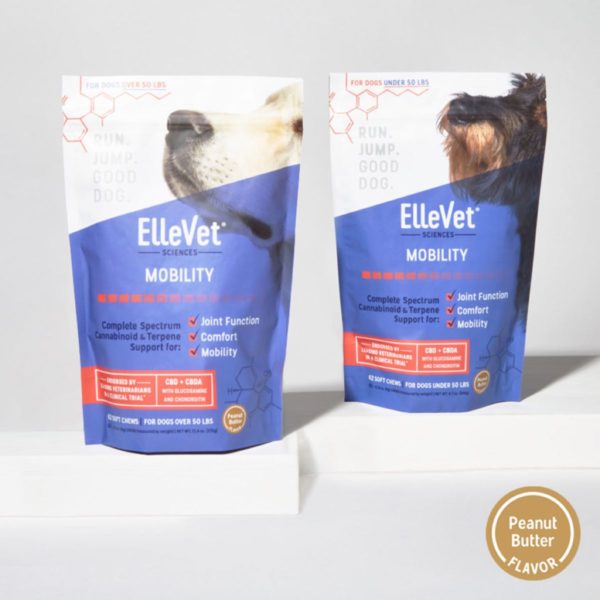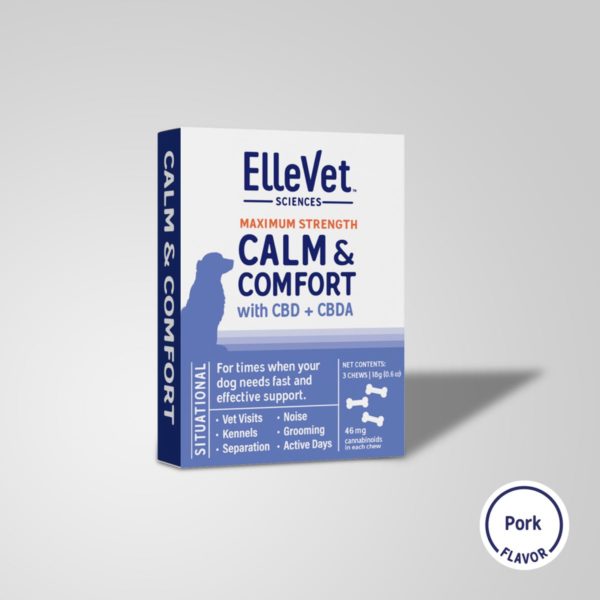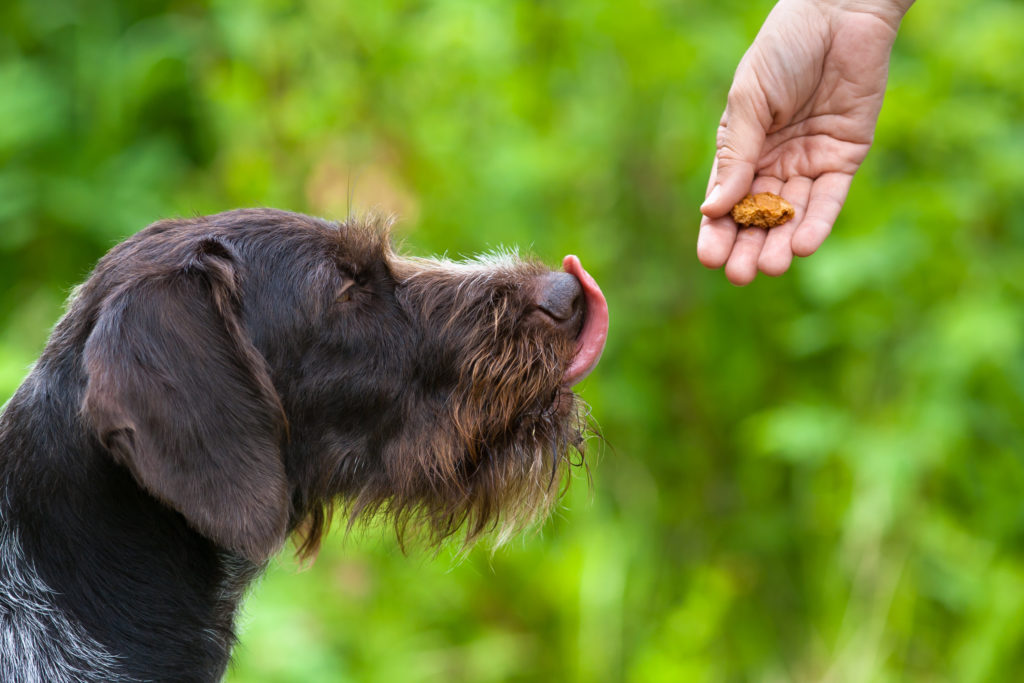Often, we get mixed messages about what is best to feed our dogs. We know that nutrition is a critical component of canine health and are eager to support our canine companions’ nutritional needs. Our well-intentioned desire to promote optimal canine health can understandably be subject to fluctuations. We often anthropomorphize our pups, and the modification of dog diets based on trends in human nutrition follows.
Our preference for pet foods with ingredients that resemble our own is understood by pet food industry marketers and advertisements, as the natural pet food segment grew from 2.0 billion in 2008 to 3.9 billion in 2012, just as contemporary trends in human diets moved to include more fruits and vegetables.
The reality of our pet’s diets is that it is a range of macronutrient compositions that can provide nutritional adequacy and form a healthy baseline for our pets to thrive. I examined grain-free dog food with the understanding that humans have increasingly been rejecting grains or discovering intolerances and sensitivities. So, wondering whether to feed your pup a grain-free diet? Here are some key things to keep in mind as you consider the best quality diet for your pet.
What Are Grains?
Grains are small, hard seeds, especially the seeds of a food plant such as wheat, corn, rye, oat, rice, or millet. Grains are a source of vitamins, minerals, and fiber. There are whole grains and refined grains. Whole grains are rich in dietary fiber, trace minerals, and vitamins B and E. Refined grains, such as white flour and white rice, contain less nutritional density than whole grains. Each grain has its own unique nutritional profile, and no one diet works for every single pet.
Oats and barley are two cereal grains that are good sources of beta-glucan, and there is evidence to suggest that these grains can serve as functional ingredients in pet food to control chronic disease incidence.
Grains are not the same thing as carbohydrates. In fact, grains are composed of all three macronutrients: protein, fat, and carbohydrates. Further, grains are not the sole source of carbohydrates. Sweet potatoes, potatoes, and legumes are all sources of the macronutrient.
Want to Feed Your Dog an “Ancestral” Diet?
Some proponents of grain-free dog diets claim that grains are an unnatural source of nutrition for dogs. And seek to return to a low-carb “ancestral” diet. It is true; our dogs evolved from wolves. Archaeological evidence indicates that dogs were the first animal to be domesticated by humans around 14,000 years ago. This domestication modified not only social and cognitive attributes but also the types of food available to dogs. A 2013 study at the University of Sweden compared the genomes of wolves and dogs and found key differences in dogs’ ability to digest starch. As dogs became fireside companions, they stepped away from pack-hunting and learned to live on wheat, rice, barley, corn, and potatoes.
An article published in the Washington Post titled, “Learning to Love Cereal Was Key to the Evolution of Dogs” points to human and canine co-evolution centered around the development of agriculture and contends that the ability to digest starch efficiently was critical to dogs’ domestication.
In nature, the primary component of the canine diet is animal protein; however, they are not quite as carnivorous as their wolf ancestors. For dogs, ancestral nutrition specified by the diets of wolves is higher in protein and lower in fat and carbohydrates than canine preferences or physiology would suggest.
Concerns About Grain-Free Dog Food
In July 2018, the FDA announced that it had begun investigating reports of canine dilated cardiomyopathy (DCM) in dogs eating certain pet foods, many labeled as “grain-free.” The investigation was prompted by cases of DCM linked to grain-free diets and taurine deficiency.
Taurine deficiency and its association with DCM are well described in scientific literature. Taurine is an amino acid synthesized primarily in the liver and central nervous system. Studies have established an association between canine taurine deficiency and dietary factors. Researchers investigated the diets of 24 Golden Retrievers diagnosed with DCM and low taurine concentrations in one such study. 23/24 pets were fed diets that were either grain-free, legume-rich, or a combination of these factors. When the animals changed their diet, symptoms of DCM were alleviated.
However, correlation does not equal causation, and in September 2020, the FDA issued an update on the grain-free pet food and canine DCM investigation. After the Veterinary Laboratory Network examined a subset of 150 dogs diagnosed with DCM, they found that the heart condition is a multifactorial issue with many variables at play – not just a grain-free diet.
There is ongoing research into the association between canine taurine deficiency, diet, and DCM. The complexities in these findings point to the importance of consulting with a veterinarian when making canine dietary choices. Consensus on dietary recommendations is difficult to find in scientific literature.
What About Fillers and Allergies?
18 million Americans are sensitive to gluten; however, this condition is extremely rare among our pets. Dogs are definitely capable of having food allergies, but the most common allergens are not grains. In fact, proteins and dairy products present the most common allergies in dogs, with beef leading the way.
Another concern which pet parents have regarding grain-rich diets is the presence of grains as “fillers.” A “filler” describes unhealthy ingredients in pet food that have little or no nutritional value. However, grains are not “fillers” and provide key nutrients to our pet’s meals. There is sparse scientific evidence contending otherwise. Before making a dietary switch with your canine companion, consult your veterinarian.
The ElleVet Team
844-673-7287
[email protected]
-
 ElleVet Hemp CBD + CBDA Oil For Dogs$70.00 – $229.95
ElleVet Hemp CBD + CBDA Oil For Dogs$70.00 – $229.95 -
 ElleVet Hemp CBD + CBDA Chews$79.95 – $89.95
ElleVet Hemp CBD + CBDA Chews$79.95 – $89.95 -
 ElleVet Hemp CBD + CBDA Soft Gels$39.95 – $139.95
ElleVet Hemp CBD + CBDA Soft Gels$39.95 – $139.95 -
 ElleVet Calm and Comfort Chews$14.95
ElleVet Calm and Comfort Chews$14.95

